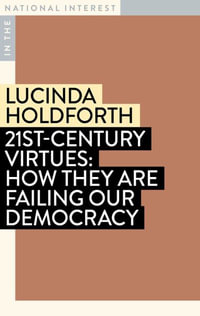Recognized as early as 1948, the right to benefit from progress in science and its applications (known more succinctly as "the right to science") has long confounded international legal scholars and practitioners. While it is key to properly framing the relationship between science, technology, and society, the right to science continues to be poorly understood and very rarely invoked by those who could benefit from it.The Human Right to
Science: History, Development, and Normative Content offers a thorough and systematic analysis of this pivotal human right. After discussing the aims, methodology, and key definitions, the book examines the
historical origins of the right to science, from the American Declaration of Human Rights to the Universal Declaration of Human Rights and the International Covenant on Economic, Social, and Cultural Rights. It then turns to mapping the development of the right within the United Nations system (including UNESCO) and its spread to regional regimes. Finally, the book breaks down the normative content of the right to science into twenty-two distinct rights, grouped in four clusters: the right to
scientific progress, to responsible scientific progress, to participate in scientific progress, and to benefit from scientific progress. For each, the book describes in detail the legal basis, content,
corresponding obligations, and indicators. The book closes by recommending the adoption of a Science Treaty to fully realize the potential that the human rights framework can offer to the regulation of science and technology.Authored by two leading experts in international law and science policy, The Human Right to Science meticulously explores the right's origins, development, and normative content. In doing so, it uncovers previously unarticulated entitlements
and obligations, offering new insights on human rights interconnections.
Industry Reviews
"A necessary comprehensive monography authored by two leading international human rights scholars and practitioners." - Mikel Mancisidor, Professor of International Law, University of Deusto & Member of the UN Committee on Economic, Social and Cultural Rights
"Bringing the historical, legal, and societal dimensions of the right to science together makes this book not merely unique, but also a crucial and necessary contribution to the advancement of this human right for its beneficiaries." - Yvonne Donders, Professor International Human Rights Law, University of Amsterdam & Member of the UN Human Rights Committee
"An in-depth guide to the intriguing history and surprisingly pervasive spread of the Right to Science in legal and scientific frameworks worldwide. A highly recommended work for both scientific and legal experts, as well as for those new to the idea of science as a human right." - Drew Shindell, Nicholas Professor of Earth Sciences, Duke University
"Comprehensive and systematic. Any scientist should keep a copy in the lab to be reminded of this key human right that impacts their work." - Andrea Musacchio, Director, Department of Mechanistic Cell Biology, Max Plank Institute of Molecular Physiology
"Cesare Romano and Andrea Boggio's large-scale, comprehensive study of the human right to science is a major contribution not just to legal studies and human rights scholarship but to any ethical-political appraisal of public policies for the funding and regulation of science, technology, engineering, and mathematics (STEM)." - Carl Mitcham, Professor Emeritus of Humanities, Arts, and Social Sciences at the Colorado School of Mines
"An incisive exploration of science and human rights that reshapes our understanding of actual and future science policy." - Bartha M. Knoppers, Professor, Centre of Genomics and Policy, McGill University
























